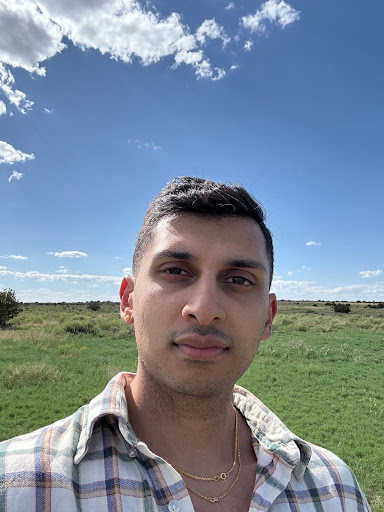
This summer, I attended Chip Conley’s Modern Elder Academy week-long workshop in Santa Fe. I was the youngest person there at 29 years old, with my peers ranging from ages 47-83. Chip invited me to attend. He’s been a supporter of Unshaming, a TV series I’m producing, and our missions are aligned: to help people confront the difficult truths of life: the identities we hide, the transitions we fear, the failures we regret.
The workshop was called “Owning Wisdom.” Before arriving, self-conscious thoughts like “what wisdom do I have to offer to people 20, 30, 40 years older than me?” swarmed around my brain like pesky mosquitoes on a damp summer day. I was also nervous that I wouldn’t be taken seriously because of my age. But I was wrong. This was one of the most enlightening, connected, and inspiring experiences I’ve ever had.
Here are my top 3 takeaways:
1. In the age of AI, wisdom will become more valuable.
When Chip said this, I actually disagreed. Most of my ChatGPT queries in fact revolve around advice, which sounds like wisdom to me. What are my next steps? How should I approach this? Tell me what I can do better.
But the workshop taught me that advice is not the same as wisdom. Advice is like Google Maps, telling you exactly where to turn, prescribing tangible directions. But wisdom is like a compass, helping you decide where to go, even when there’s no clear path.
I learned that the most wise among us don’t give us answers; they ask questions — questions that force us to find the answers within.
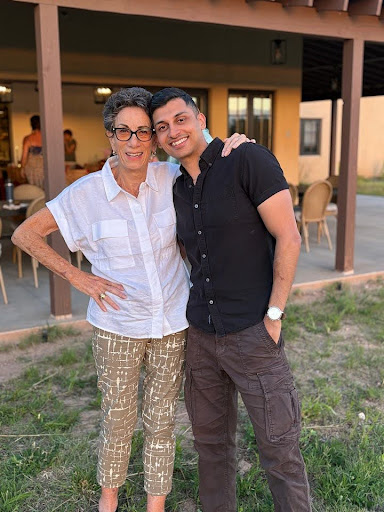
Some of my fellow “elders,” the incredible friends I made at the workshop
2. Grieving doesn’t just include the loss of people. It also includes the loss of identity.
An obvious example of grief is losing a partner or a friend or parent. But what about the loss of our identities as good children, good parents, and good partners to those who are no longer in our lives or those who no longer want to be in our lives? What about the loss of identifying as a busy person once we retire? The loss of no longer being perceived as attractive or valuable as we grow older? It’s another layer of grief that we have to confront. Not just the loss itself, but the pain of the identity being gone too.
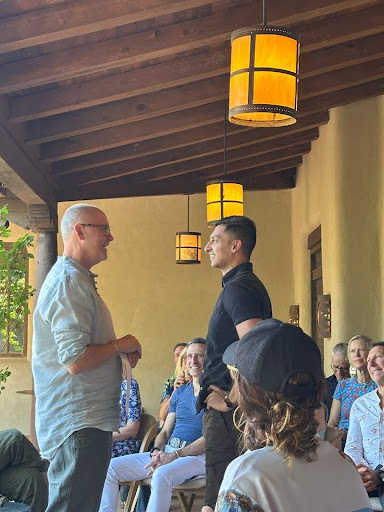
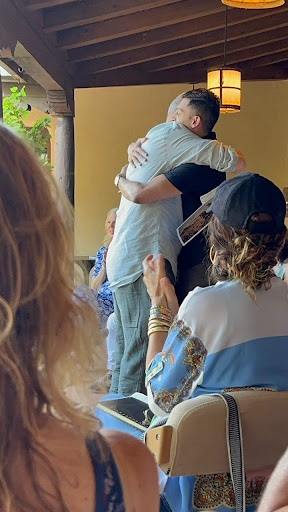
Me and Chip Conley during our “graduation”
3. The opposite of shame is belonging.
Upon entering on Monday with 25 strangers, many of us brought our shame: the scars, relationships, and burdens of life that felt scary to confront. But throughout the week, we were given the space to unshame, to speak vulnerably about our fears and the identities we hide. By Saturday, when it was time to leave, I felt as though I was a part of something bigger than myself, a genuine community who saw me for who I am.
Although at first I was worried about attending the “Modern Elder Academy” as a 29 year old, I left the experience being reminded that wisdom — and unshaming — are ageless.
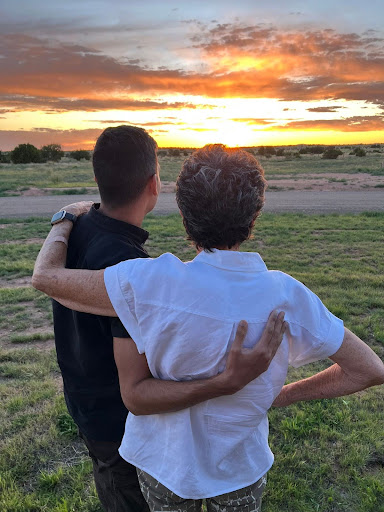
The eldest (83) and the youngest (29), me, looking out onto the Santa Fe sunset together
-Jordan
Jordan Gonsalves is a journalist who reports on shame and its impact on Americans. He is a 2023 Columbia Journalism School graduate — where his master’s thesis on the military’s HIV policy was published in Time Magazine. He hosts a popular LGBTQ history podcast on iHeartMedia called But We Loved — which was just nominated for Podcast of the Year at the GLAAD Awards. To learn more about Unshaming, check out his podcast.